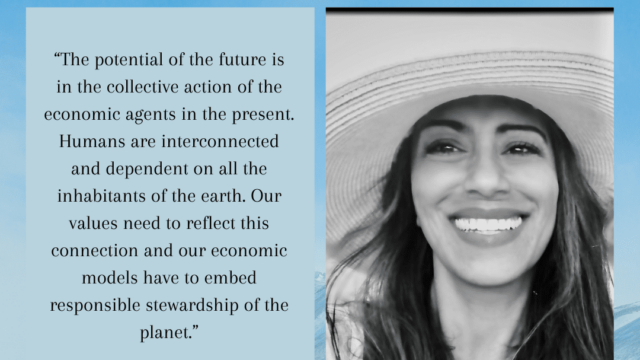Anjali Nair (’20), Astrid Pedersen (’20) and Fenner Dreyfuss-Wells (’23) presented research on conscious consumption at the CANSEE (Canadian Society for Ecological Economics) graduatestudent symposium on Friday, June 26, 2020. Their presentation was overseen by Dr. Madhavi Venkatesan and originated in her spring 2020 Economics of Sustainability course, where all course participants were involved. The abstract for the research paper on this project has been accepted for a special issue of Sustainability. The paper will be submitted for peer review and consideration for publication in late August.
16 students are involved in this project and will be listed as contributing authors. Dr. Venkatesan, Anjali Nair, Astrid Pedersen and Fenner Dreyfuss-Wells will be lead authors.
©Playthink Live Sketching 2020 (playthink.com)
Conscious Consumption: A Case Study of the relationship between economic behavior, education and outcomes
Abstract::This paper is the outcome of a course project for Economics of Sustainability (Northeastern University) where a lifecycle approach to decision-making was incorporated in surveying consumer preferences. Course participants designed a survey where questions and responses were developed to be indicators of behavioral bias. The survey instrument, comprised of 19 questions, was administered individually by class participants and responses were recorded, coded and evaluated. The consumer good targeted in the survey was convenience-based coffee consumption where convenience was defined by the use of single-use disposable coffee cups. Survey participants were asked a variety of demographic and behavioral questions related to their coffee consumption and were then exposed to environmental impacts resulting from a lifecycle approach to convenience coffee consumption. Following their exposure to this information, additional questions were asked to evaluate if and how education may contribute to future choices. The survey and methods are provided and the study as described is a replicable exercise that legitimizes the significance of education to promote sustainability. However, a single point in time evaluation and dissemination of information are not likely to be sufficient to promote long-term behavioral change. The paper concludes with a discussion of stakeholder involvement and suggested next steps.
Keywords: economics, sustainability, bounded rationality, lifecycle assessment
Sustainability link: https://www.mdpi.com/si/sustainability/behavioral_economics



